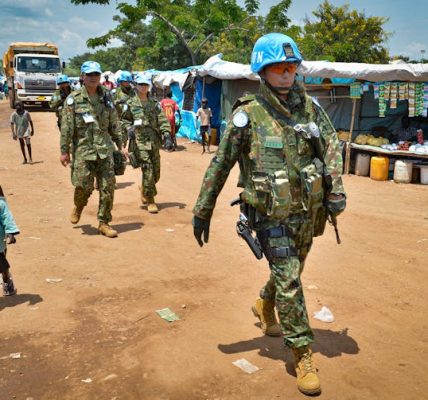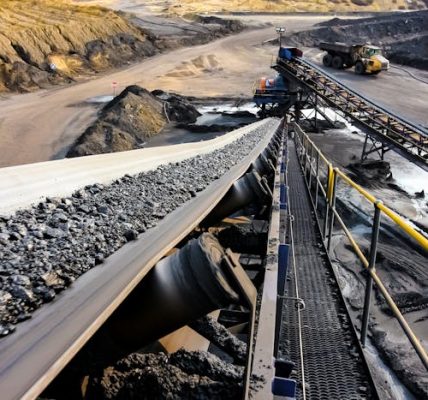Starmer announces migration ‘return hubs’ on Albania visit, but Albania doesn’t want them – what’s going on?
Keir Starmer became the first British prime minister to visit Albania since the two countries established diplomatic relations in 1921. During the visit, he announced that the UK plans to set up “return hubs” for asylum seekers whose claims are rejected by the UK.
Just days after announcing his plans to reduce legal migration to the UK, this move on irregular migration is more evidence of the prime minister’s concern about losing voters to anti-immigration Reform UK.
Before meeting with Albanian prime minister Edi Rama to sign a strategic partnership agreement between the two countries, Starmer said that the UK has begun formal talks with several countries to set up return migration hubs to send asylum seekers abroad. The specifics are yet to be announced, but it has been reported that these would probably be in the western Balkans.
The plan has drawn comparison to the Conservative government’s Rwanda scheme, but is different in a number of ways.
Get your news from actual experts, straight to your inbox. Sign up to our daily newsletter to receive all The Conversation UK’s latest coverage of news and research, from politics and business to the arts and sciences.
Under the Rwanda scheme, people who arrived in the UK illegally would have been sent straight to Rwanda where their asylum claims would be processed. If accepted, they’d be offered asylum in Rwanda, not the UK. Starmer cancelled the plan in one of his first moves as prime minister.
With Labour’s plan, people would only be sent to another country if their asylum claim is rejected and they’ve exhausted all legal options to stay in the UK. The rationale is that they would not be able to disappear into the informal economy and illegal actives in the UK after an asylum claim was not successful.
The goal of both plans is to act as a deterrent to irregular migration, and to cut the high cost of hosting undocumented migrants and asylum seekers in the UK, which has become a major political issue.
The return hubs plan also has the approval of the UN refugee agency, which condemned the legality of and the practically of the Rwanda scheme.
However, it has already hit a roadblock. Albania was one of the UK’s preferred options for a return migration hub. But during a joint press conference with Starmer, Rama said that Albania will not take part in such a scheme.
This is probably because a similar set-up with Italy has so far been unworkable, legally and politically .
Under the Italy-Albania migration agreement signed in November 2023, Albania is meant to play host to two Italian processing centres, where they planned to send asylum seekers intercepted at sea. But after facing numerous legal challenges, Italy is instead using them as repatriation facilities to hold those whose claims have already been rejected while they await deportation.
Partnership with Albania
The UK has maintained a successful returns arrangement with Albania, set up by the last government.
In 2022, Albanians accounted for over one-third (around 12,500) of all small boat entries, more than any other country. Arrivals from Albania have dropped by 95% in the last three years. And the number of Albanians returned to the country has more than doubled in the last two years, with 5,294 Albanians returning in 2024.
The two countries set up a joint task force to tackle organised crime networks that were facilitating the illegal entry of Albanian nationals to the UK. Starmer began his visit at the Port of Durres, where British and Albanian law enforcement officials are stationed as part of the Joint Migration Task Force with Albania.
Starmer indicated that the task force will be expanded to include the other western Balkan countries. This is because the western Balkan route is one of the main migratory paths into Europe. It was estimated that in 2023, 100,000 people used this route to come to the UK.
The visit, which comes days after Albania’s parliamentary election, shines a light on some of the political tensions between the UK and Albania.
The Albanian diaspora community in the UK in recent years has expressed feeling stigmatised and targeted due to inflammatory rhetoric of the last government.
Suella Braverman, the former home secretary, called Albanians “criminals” while claiming migrants were “invading” the UK. Robert Jenrick, the former immigration minister, posted videos telling police to find Albanians and “lock them up” and “deport” them.
In 2024, Albanians made up the highest percentage (13%) of foreign nationals in UK prisons, with over 1,272 people in custody. Along with Albanians, Polish (9%), Romanian (7%), Irish (6%) and Jamaican (4%) nationals account for around 12% of the overall prison population.
Rama, who just won the election, was fully aware of voters’ sentiment towards the UK. There have also been protests in the country against the current migration arrangement with Italy. Any new agreement, particularly with the UK, could be politically damaging for the Albanian government.
This visit could be a turning point for mending relations. Starmer declared that his government is fully committed to strengthening ties with Albania, and signed a strategic partnership agreement, with a focus defence and security.
Starmer and Rama both said that the partnership will expand at the UK-Western Balkan Summit that Starmer will host in London in autumn, and it will include increasing trade, economics investment, education and managing migration.
Andi Hoxhaj does not work for, consult, own shares in or receive funding from any company or organisation that would benefit from this article, and has disclosed no relevant affiliations beyond their academic appointment.



